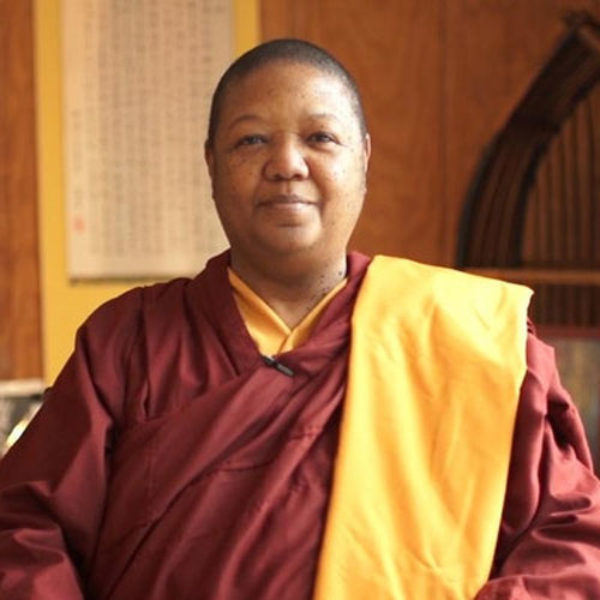Sympathetic Joy (mudita) is one of the four noble qualities recommended by the Buddha on the path of awakening. Such joy arises from appreciating the good fortune of self and others.
With Martine Batchelor recorded on February 14, 2016.
Found our teachings useful? Help us continue our work and support your teachers with a donation. Here’s how.
Discover more from the Dharma Library
-

Daily Meditation Recordings, with Leela Sarti – Week of March 7, 2022
This week’s theme is “Nurturing a Long View and Living Now”. It takes a lot of heart and presence to live a satisfying and meaningful life. Our inner patterns of resistance and reactivity often make us short sighted and contracted, and yet we have the potential to live from a timeless presence and embody beautiful human qualities such as wisdom, care, passion and originality. How can you make your time on earth something beautiful to behold? How can you live now with zest, courage, and love? How can you be a good ancestor for the ones that will live 100,000 years from now?
-

Daily Meditation Recordings, with Nathan Glyde – Week of Oct 25, 2021
This week’s theme is Making Sense of Self.
Although the Buddha encourages us to not indulgently ponder whether the self is real or not, he did offer us a way to explore how the sense of self appears. This methodology, called the khandhas (aggregates: the heap of heaps), exposes all aspects we gather together to create and hold to our sense of self: form (body); vedanā (subtle preference); perception; saṅkhāra (mental formations – like intention, attention…); and consciousness (knowing). -

How We Grow Through What We Go Through
Recorded :
January 29, 2023 How can we, and our communities, not just survive but thrive during challenging, post-traumatic times? Spirituality, positive psychology, anthropology, neuroscience, mindfulness and more have boosted human resilience in the face of adversity for generations. Through this session will explore meditation practices that can help us to transform challenges into creative opportunities for growth.
-

All Worldly Dharma is Buddha Dharma
Recorded :
July 30, 2023 Nowadays, many Buddhist practitioners have mistaken views. Taking the false to be true, we can make some progress, but not much. Only in the light of wisdom can we awaken to the truth because it allows us to penetrate avidya — the karmic hindrance of non-understanding that is complicating our lives. Join us for a discussion…
-

Restorative Stillness Even During Turbulent Times
Recorded :
July 19, 2020 “Enter into the stillness inside your busy life. Become familiar with her ways. Grow to love her, feel [her] with all your heart and you will come to hear her silent music and become one with Love’s silent song.” ~Noel Davis You can tap into inner stillness and tranquility regularly during your days, even during…
-

Daily Meditation Recordings, with Martin Aylward – Week of April 17 – 21, 2023
Daily meditations with Martin Aylward.
-

What is the Ultimate Truth?
Recorded :
June 5, 2022 The world of mind-body, mindfulness, meditation and well-being maximises priority on conventional or relative truth. This requires wise attention and change relative to our experience. We are familiar with taking up views, remaining neutral with views or holding onto views. We might call these views relative or absolute. Can we discover (ultimate) truth not bound…
-

Presence as an Act of Compassion and Love
Recorded :
April 21, 2024 Mindful presence is the necessary ground of compassion and care. With presence, we courageously enter an intimacy that connects us with ourselves, each other and the world, body, heart and spirit. The beautiful truth is that presence and love can grow and blossom through the practices of meditation and mindful loving awareness. Let’s join together…








Discussion